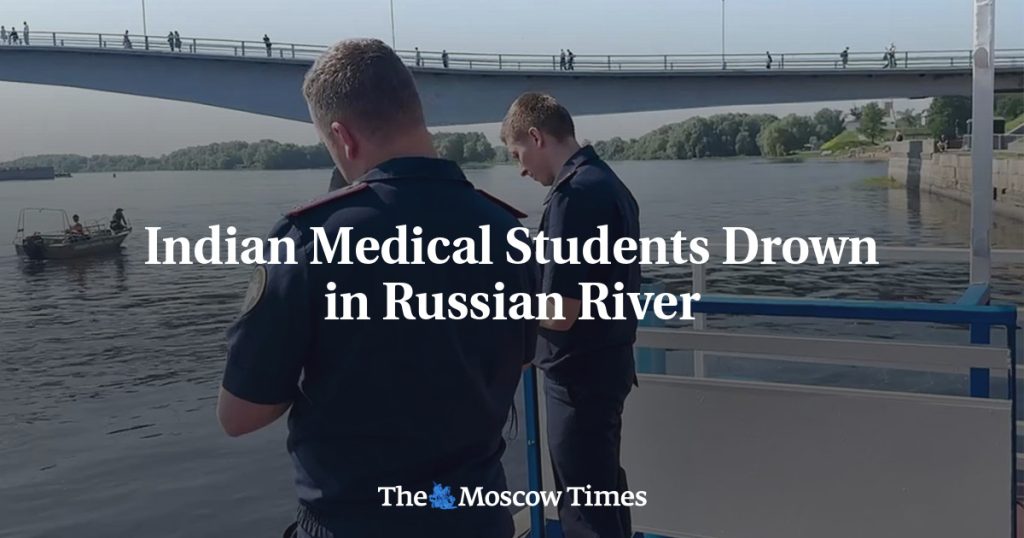Four Indian medical students tragically drowned while swimming in a river in northwestern Russia. The incident occurred in the Volkhov River in Veliky Novgorod, where swimming is prohibited. According to the regional branch of Russia’s Investigative Committee, two students were caught in the current, prompting the other two to jump in and attempt a rescue. Unfortunately, all four students ended up going underwater.
The Indian consulate in Saint Petersburg confirmed that a fifth student was saved from the river. The students were enrolled in a medical program at a university in Veliky Novgorod. Efforts were being made to contact their families and repatriate their bodies as soon as possible. Two bodies had already been recovered by Russian investigators, with the search ongoing for the remaining victims.
Veliky Novgorod, known as one of the oldest cities in Russia, is located south of Saint Petersburg. The Volkhov River runs through the city on its way to Lake Ladoga in northwestern Russia. It is a popular tourist destination with a rich history and cultural heritage. However, the river where the tragic drowning occurred was in an area where swimming is banned due to dangerous currents.
The incident serves as a stark reminder of the importance of adhering to safety regulations, especially when engaging in potentially risky activities like swimming in rivers with strong currents. The loss of the four students has deeply saddened both the Indian and Russian communities. Authorities are conducting investigations into the circumstances surrounding the drowning, while also working to ensure the safe return of the students’ bodies to their families.
The tragedy highlights the need for increased awareness of water safety measures, especially among foreign students studying abroad. It is essential for individuals to be informed about the potential risks associated with various water activities and to take appropriate precautions to avoid accidents. The Indian consulate’s swift response in coordinating with local authorities and offering support to the students’ families demonstrates the importance of diplomatic relations in times of crisis.
In conclusion, the drowning of the four Indian medical students in a Russian river serves as a somber reminder of the dangers that can arise from disregarding safety regulations. As investigations continue into the incident, efforts are being made to repatriate the victims’ bodies and provide support to their families. The tragic event underscores the importance of maintaining awareness of water safety practices, particularly in unfamiliar environments. Ultimately, the loss of these young lives is a heartbreaking reminder of the need for vigilance and caution when engaging in recreational activities near bodies of water.















